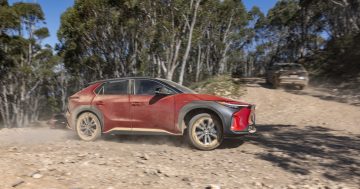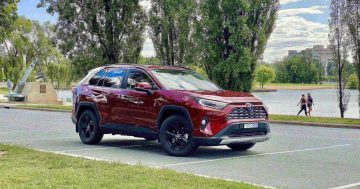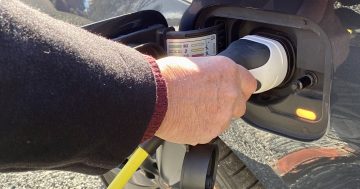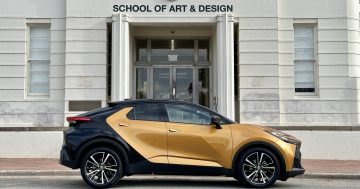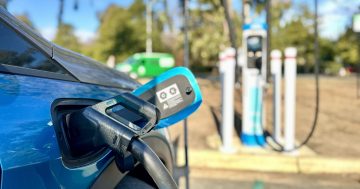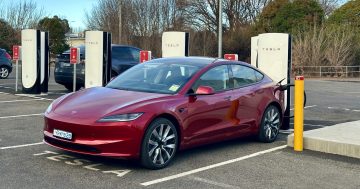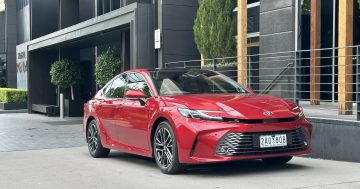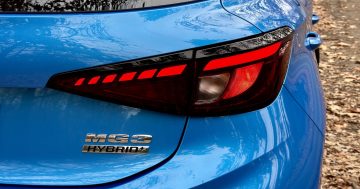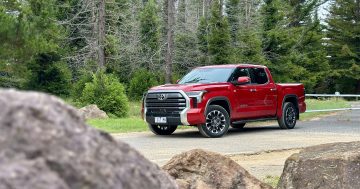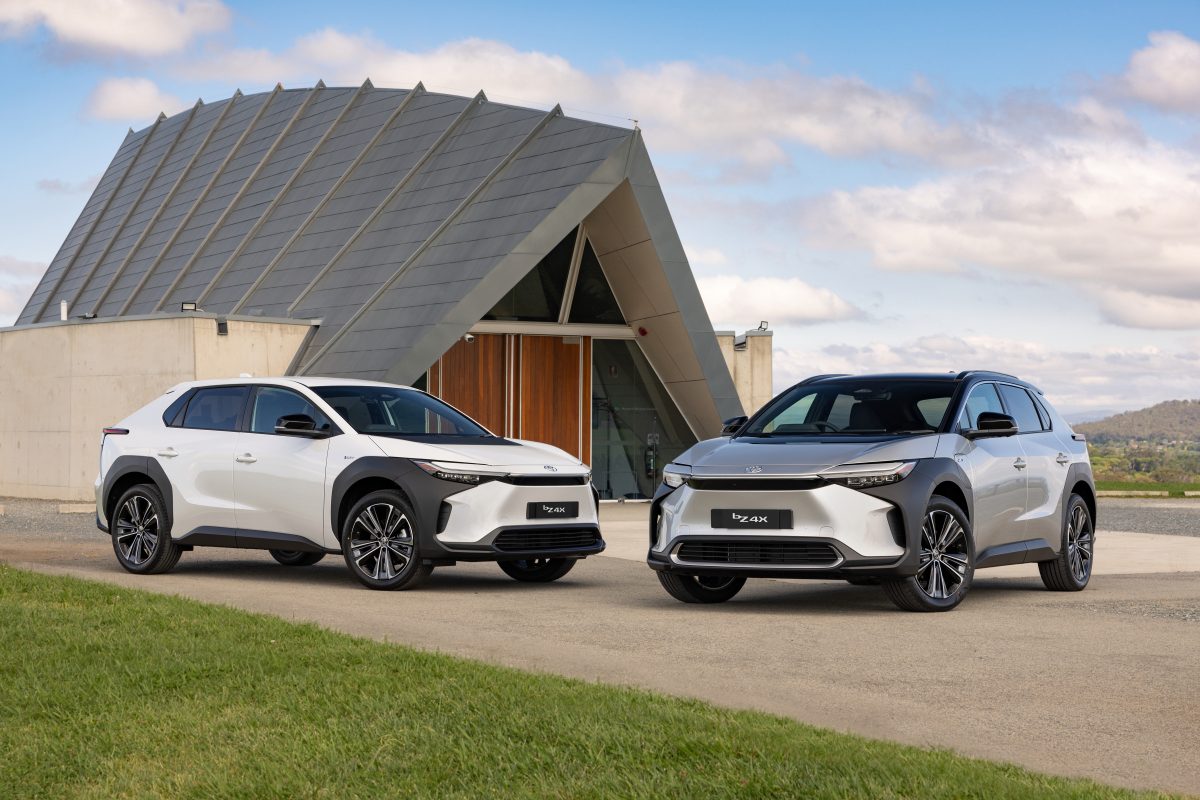
The 2024 Toyota bZ4X FWD and AWD posing for photos at the National Arboretum. Photo: Toyota Australia.
It’s been delayed twice due to stock levels and mild updates, then a recall to literally prevent the wheels falling off under “sharp turns and sudden braking”, but Toyota’s first battery electric vehicle has finally arrived in Australia.
The bZ4X was officially launched in Canberra this week, during a media event at the Ovolo Nishi hotel in New Acton.
“Canberra is really significant for Toyota,” Toyota Australia public affairs manager Jeremie Smith said.
“Back in October 2001, we launched the original Prius right here.”
Described as a “car for the 21st century”, the Prius was the world’s first mass-produced petrol-electric hybrid. Since then, of course, the same technology has been applied across Toyota’s range to everything from the Yaris Cross to the Kluger.
And last year, nearly 110,000 hybrid and plug-in hybrid cars were sold new in Australia, with Toyota as the top seller (73.2 per cent). In the ACT, 1854 new hybrids were sold in 2023.
The brand has been criticised for its slowness in taking this to the next step with pure EVs, despite a promise made last year to introduce 10 new battery-powered models by 2026.
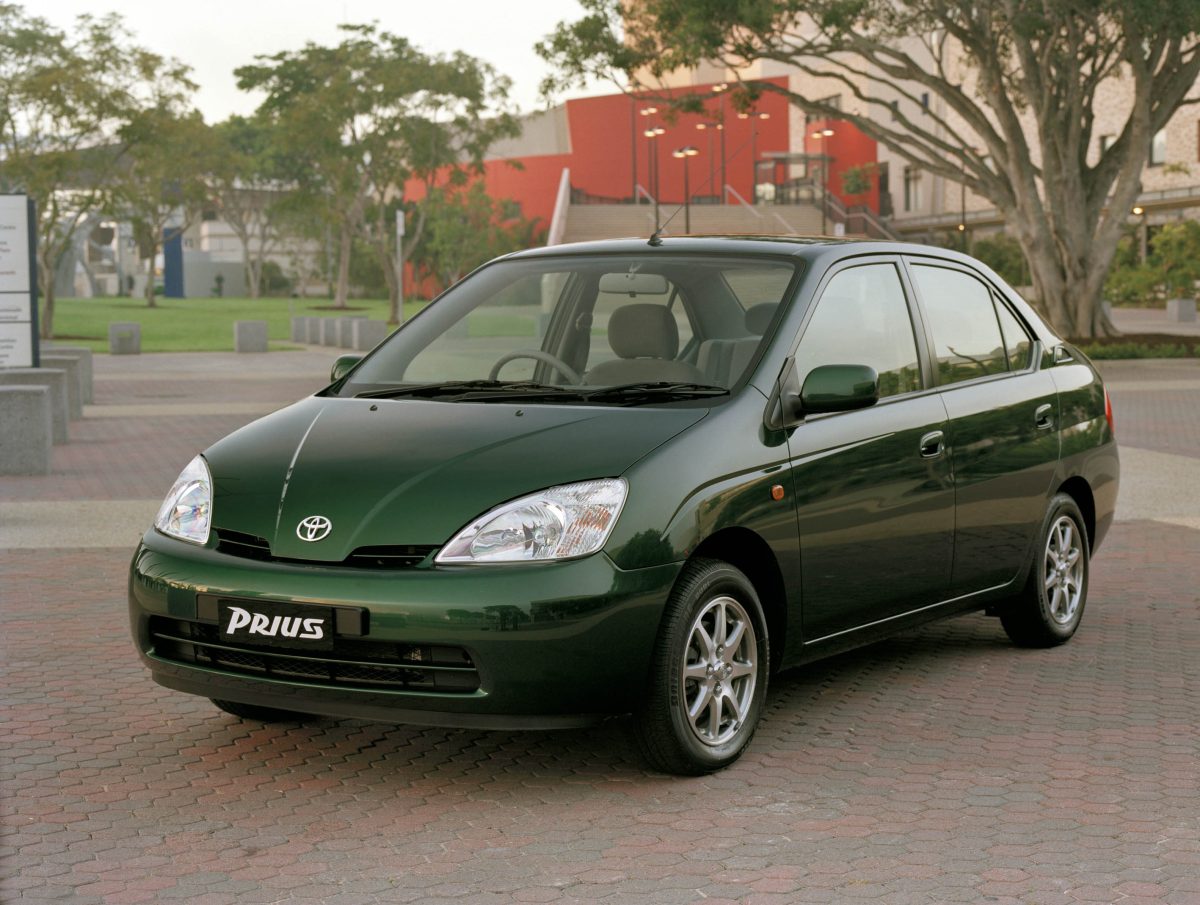
The original Toyota Prius was launched in Canberra in October 2001. Photo: Toyota Australia.
A leaked document sent from corporate to the heads of Toyota dealerships in the US, which tells them not to expect too many EVs or PHEVs on their lots in years to come, explains why.
The document says 300 new lithium, cobalt, nickel and graphite mines are needed to meet expected battery demand by 2035, likely creating an “imbalance between the raw materials and final production”.
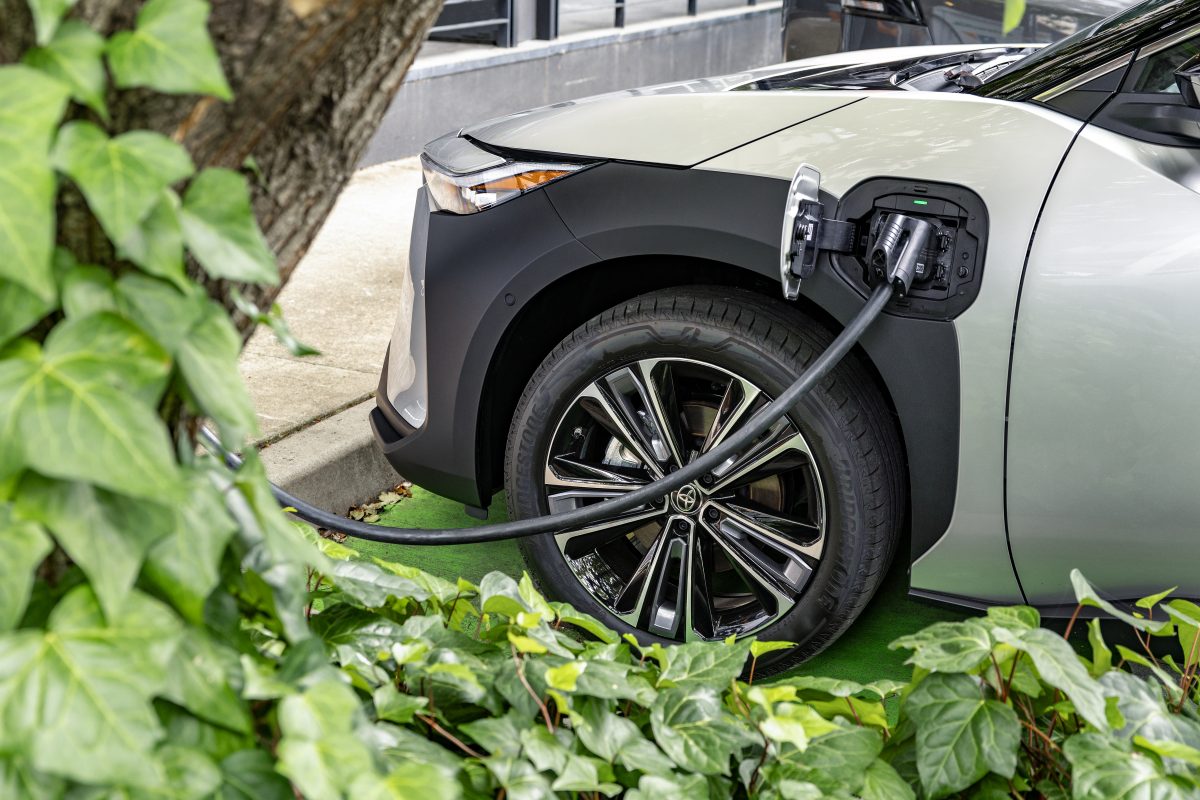
Toyota has its doubts about the availability of raw materials to make enough EVs. Photo: Toyota Australia.
Couple this with the fact fast-charging facilities are still few and far between, and the upfront cost of the average EV is still high, and Toyota emphasises the need for a “mix of electrified options”.
It backs it up with a ratio, called the “1:6:90 rule”, which says the raw materials used to make one long-range EV can be used to make six PHEVs or 90 hybrids.
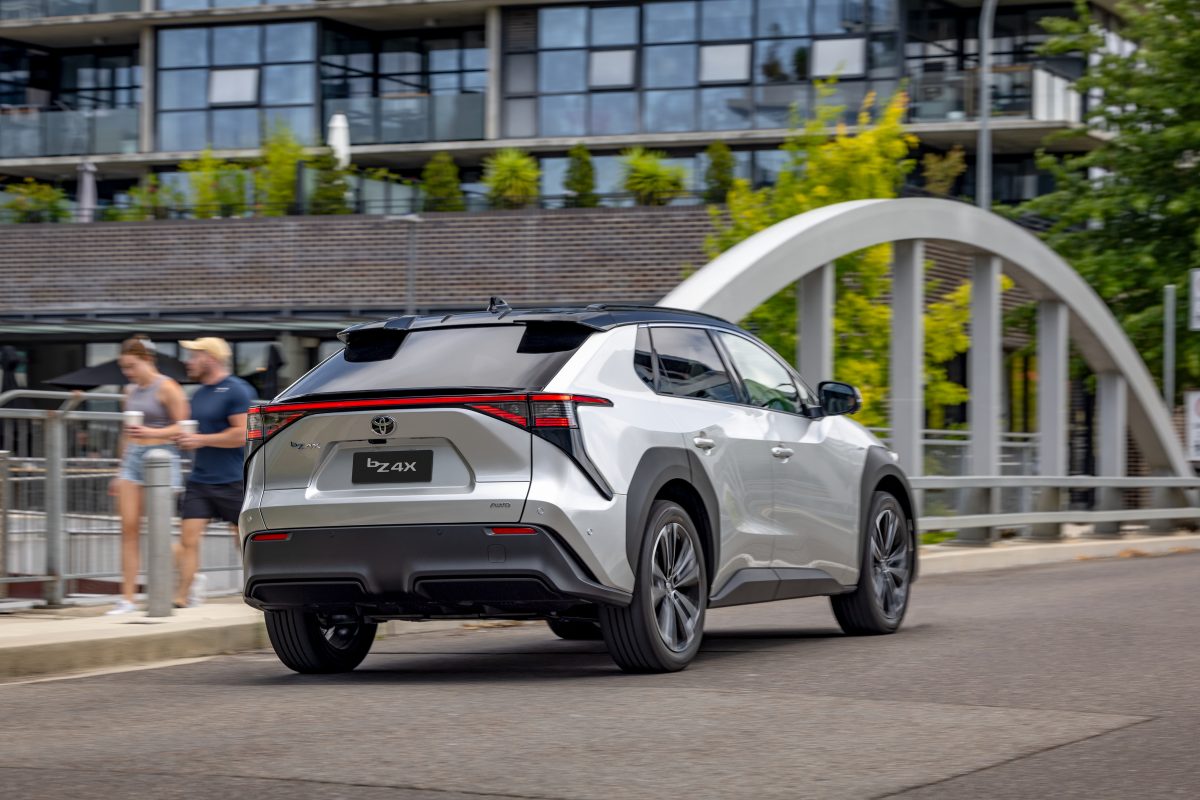
The all-wheel-drive model touring the Kingston Foreshore. Photo: Toyota Australia.
Toyota Australia Sales and Marketing vice president Sean Hanley described the new bZ4X as a “very significant step in a new direction”, but also reiterated it formed part of a “a multi-pathway approach to reducing carbon emissions”.
“It’s never been a question of if we should launch BEVs, but only a question of when we should launch BEVs,” he said.
“We believe that right now is exactly the right time to unlock all the customer benefits of battery power.”
He said the mainstream appeal of BEVs was “not quite there yet”, and used this as an opportunity to stress “it’s essential the federal government takes the time to get the settings right for the new vehicle efficiency standard”.
This standard, proposed last month, would require car makers to meet or beat an average CO2 target applied to the vehicles they sold here. This would be lowered over time, effectively forcing more electric and fuel-efficient options into the Australian market. Those who couldn’t make the target would have to pay a $100 penalty per extra gram of CO2 or buy credits off another brand.
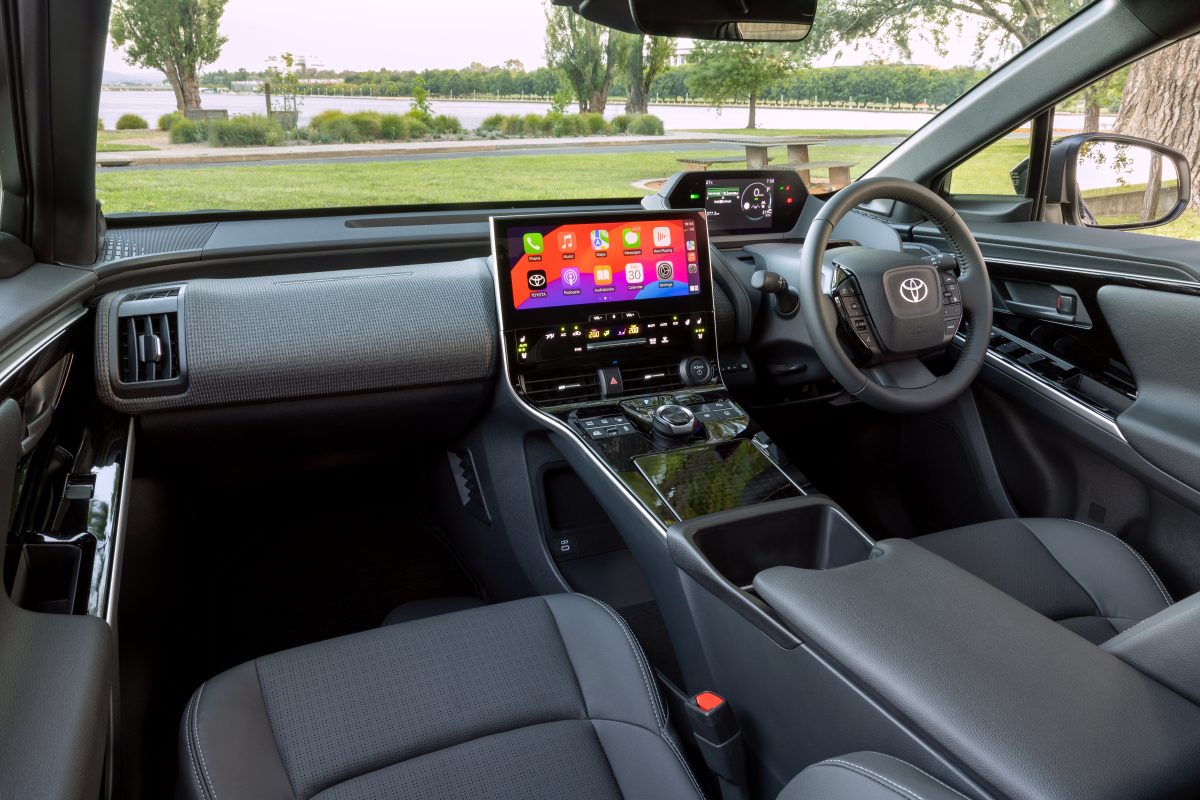
Inside the bZ4X AWD. Photo: Toyota Australia.
Mr Hanley said Toyota “welcomes the policy”, but that the “timing of the transition is too quick, especially for large 4WD SUVs and light commercial vehicles”.
He said it would lead to customers having “little choice” but to hold on to their existing vehicles for much longer, “defeating the intent”.
“You’ve got three options when it comes to the fines: one, you pay the price, that ultimately has got to be passed on to the consumer; two, you stop bringing those cars in – some people love that idea, but there’s a bunch of people in rural Australia … who probably don’t; three, you buy credits.”
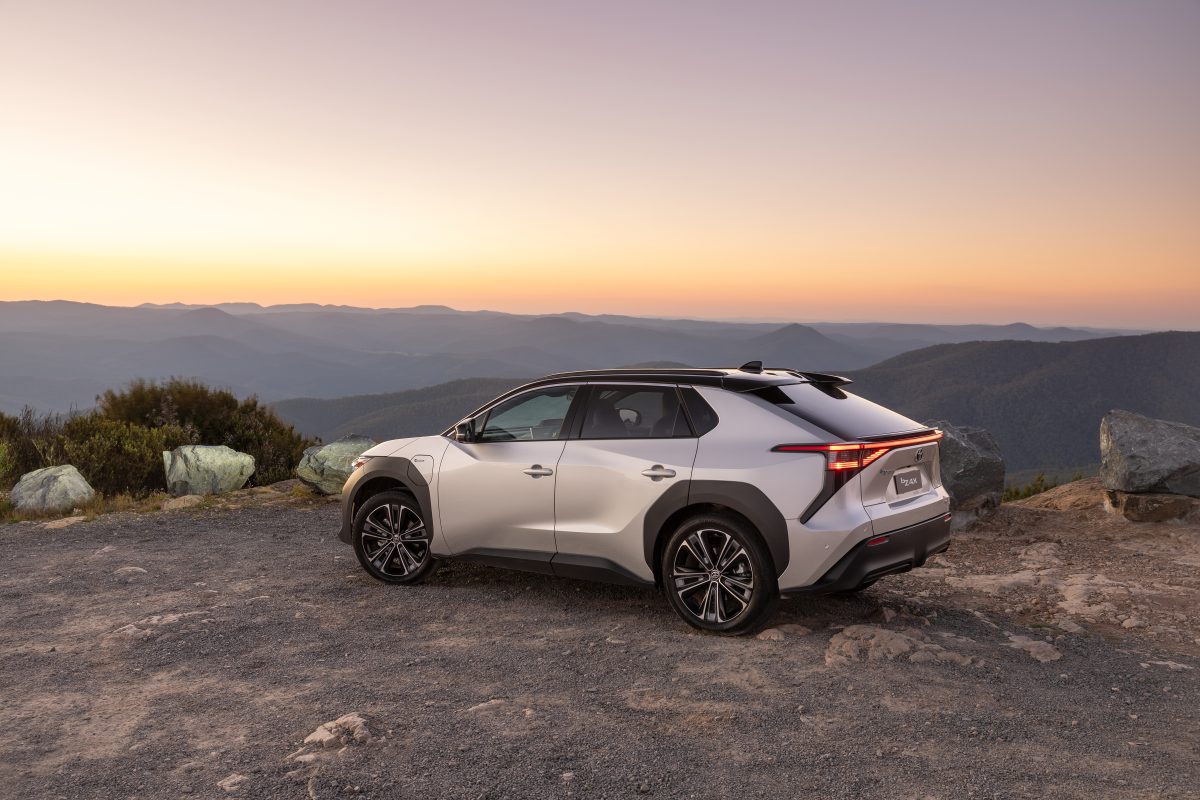
Sunset from the top of Mount Coree. Photo: Toyota Australia.
The bZ4X was developed in partnership with Subaru, and shares a lot in common with the electric Subaru Solterra.
Pricing, revealed this week, places it just above the rear-wheel-drive Tesla Model Y ($65,400), at $66,000 for the 150 kW single-motor, front-wheel drive model. The 160 kW dual-motor all-wheel-drive bZ4X costs from $74,900. Range is estimated at 535 km and 485 km respectively.
These prices are also on par with the cost of the original Prius which, when adjusted to today’s money, cost $72,000 ($39,990 in 2001).
The first customer took delivery of a new bZ4X on Wednesday, 28 February, from Canberra Toyota in Phillip. Long-time Toyota hybrid owners Ali and Nafiseh Lashkari said they wanted to wait until the brand released its first EV before transitioning to full electric power.












